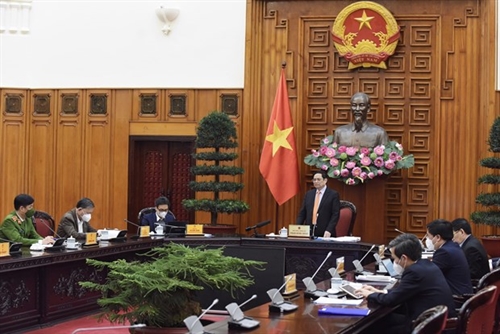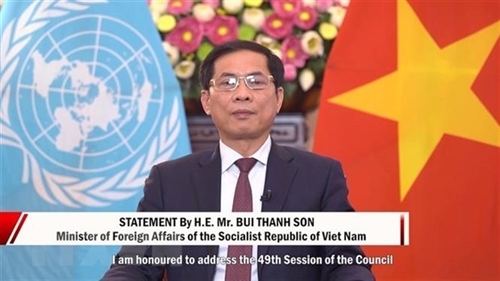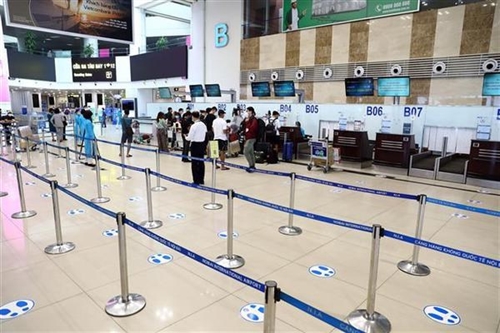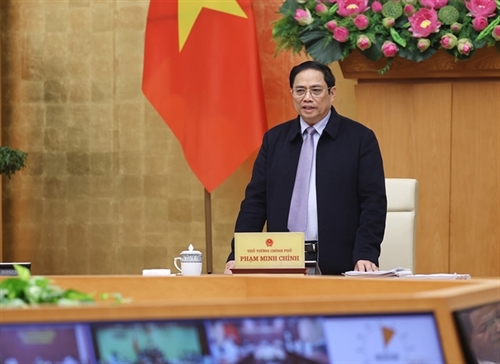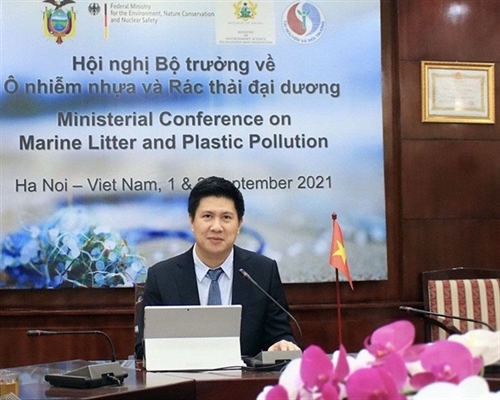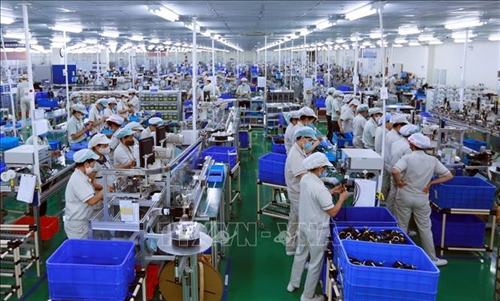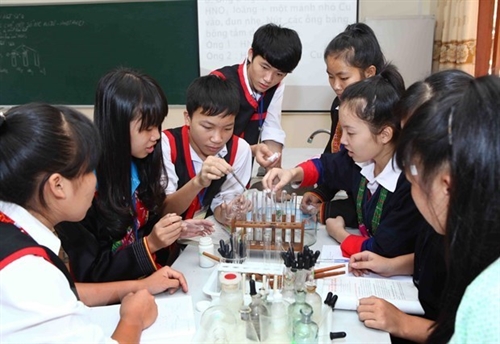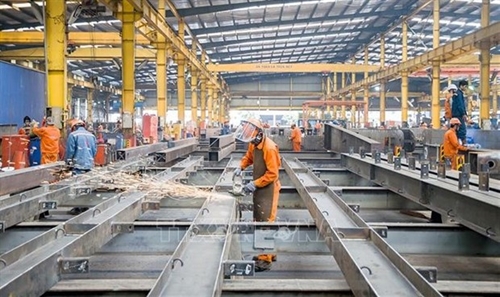Vietnam will soon disburse at least 50 percent of the VND 350 trillion (USD 15.42 billion) economic recovery package, the largest in its history, aiming to reboot the country’s economy after a long period of social and mobility restriction due to the pandemic.
The package is part of Government Resolution 11/NQ-CP issued on January 30 on socio-economic recovery measures, and Resolution 43/2022/QH15 on fiscal and monetary policies.
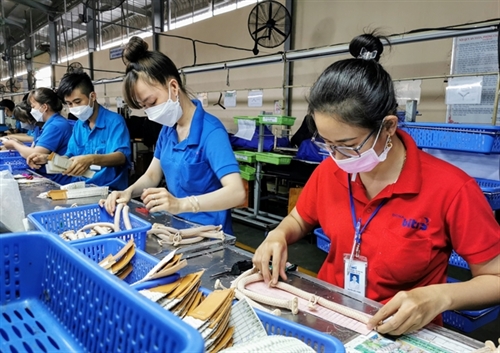 |
| Workers make footwear products in Binh Tien Rubber Cooperative in Can Tho Province to serve the domestic market and export to other countries. |
The program will support business and long-term national development, according to the Minister of the Ministry of Planning and Investment (MPI) Nguyen Chi Dung.
He said the economy would encounter many difficulties this year, however, Resolution 11 would create new drivers for the country’s growth in 2022 after two years of interruption.
Deputy Minister of MPI Tran Quoc Phuong said his ministry had asked agencies to urgently carry out support policies for businesses. Ministries and provinces have to send their monthly reports on the results to the MPI for submission to the Government.
Phuong said many ministries and agencies have prepared support policies for businesses. For instance, the Finance Ministry has reduced value-added tax for businesses and the State Bank of Vietnam is developing and collecting comments for the Draft Decree on interest rate support from the State budget for loans of enterprises, cooperatives and business households.
The program stipulates that the opening of the economy should adhere to the investment in healthcare. It also announces a detailed roadmap for reopening tourism, aviation, entertainment, culture and arts, while ensuring pandemic safety.
Under the program, a support package worth VND 6.6 trillion will be spent on providing housing rental subsidies for laborers who are working in industrial parks, export processing zones and key economic regions.
Those who return to work will receive support in cash for renting houses in three months, and they can access capital for production development with a loan worth up to hundreds of millions of Vietnam dong.
Under the program, VAT reduction has been applied. Accordingly, the Government slashed the value-added tax rate from 10 to 8 percent earlier this month.
Drastic implementation
Prime Minister Pham Minh Chinh on February 12 signed a dispatch calling for speedy execution of the socio-economic recovery and development programme as well acceleration of disbursement.
Accordingly, the Prime Minister requested the effective implementation of the COVID-19 pandemic prevention and control program for 2022-2023 and work to ensure safe production.
Government agencies are required to develop specific action programs and plans to carry out Resolution No 1, with a focus on coordination of monetary, fiscal and other policy tools to maintain macroeconomic stability, curb inflation and ensure safety of credit institutions.
At a conference on the Resolutions of the Government and the National Assembly on fiscal policy for economic recovery last month, Deputy Prime Minister Le Minh Khai emphasized that resources should be allocated appropriately to avoid the "ask - give" approach and slowing down the program.
Phan Duc Hieu, a Standing Member of the National Assembly’s Economic Committee, said ministries and agencies must promptly issue regulations to put policy into practice.
Economist Can Van Luc said that the recovery program was feasible and absorption capacity would be ensured.
Luc added that it was essential to improve the coordination of ministries and agencies involved in fiscal and monetary policy. This would neutralize the money supply, as well as control interest rates and inflation.
Luc said Vietnam needed to accept the increasing public debt and budget deficit and rising credit growth under control in the 2022-2023 period. The country could increase its budget spending and credit growth at a reasonable level of between 13-14 percent per year. From 2024, the Government will start controlling these balances in a healthier way.
He was upbeat about a positive recovery for the world and Vietnam's economies. The world's economic growth is expected to grow between 4.5-5 percent and Vietnam to be around 6.5-7 percent.
